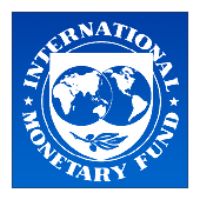IMF Forecasts Faster Economic Growth in 2010 for U.K.
According to the International Monetary Fund, the British economy will expand faster than previously forecast in 2010 now that the housing market slump eases and a weaker pound bolsters exports.

Gross domestic product will rise 0.9 percent, the IMF said, compared with a July forecast of a 0.2 percent gain. The economy will shrink this year by 4.4 percent, more than the 4.2 percent contraction predicted earlier, the Washington-based fund said today in Istanbul, where it is holding its annual meetings.
The Bank of England this month raised the prospect of a "virtuous upward spiral" in the economy, aided by increases in asset prices, though it cautioned that there may still be "false dawns." U.K. consumer confidence jumped the most since 1995 last month as optimism on the outlook for the economy rebounded, GfK NOP said yesterday.
"Real GDP growth is expected to turn positive in the second half of 2009, as the real-estate and financial markets stabilize and the weakened sterling supports net exports," the IMF said, Bloomberg reports.
Bloomberg quoted Jane Foley, a research director in London at Forex.com, as saying, "There has been an upswing in the economic data, pointing to the U.K. going from being a laggard in the global recovery to closing the gap with the others."
The pound rose 0.7 percent to trade at 90.97 pence per euro as of 11 a.m. in London. It gained 0.2 percent to $1.6017.
Bank of England Governor Mervyn King was quoted by Britain's Newcastle Journal last week as saying the currency's depreciation was "very helpful" to help rebalance the U.K. economy, sending the pound to its lowest level in six months versus the euro and below $1.60 for the first time since July. The U.K. trade deficit narrowed to 2.5 billion pounds in July, from 3.9 billion pounds in November 2007, when the pound reached a 26-year high against the dollar.
"Sterling has fallen too far," said Geoffrey Yu, a currency strategist at UBS AG in London. "King's comments were misinterpreted so once people realized that, the pound was due to correct," Bloomberg reports.
In the meantime, the world economy has begun recovering from recession but the crisis is not over because unemployment will rise and banks remain weak, the International Monetary Fund said on Thursday.
The IMF projected the global economy would grow 3.1 percent in 2010, after shrinking at an annualised 1.1 percent this year.
The estimates were higher than forecasts put out in July of 2.5 percent expansion next year and a 1.4 percent contraction in 2009.
"The good news... is that in our view the recovery really has started. That does not mean, and I want to be crystal clear on this, that the crisis is over," IMF chief Dominique Strauss-Kahn told students in a speech in Istanbul, AFP reports.
Subscribe to Pravda.Ru Telegram channel, Facebook, RSS!





